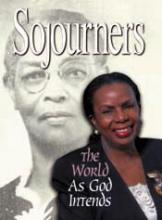The book that later church writers named The Acts of the Apostles might just as well have been described as Luke's second book about the things Jesus did and taught through the Holy Spirit. Its opening words ("In the first book") and its common addressee (Theophilus) show that it is a companion text to the gospel of Luke (compare Luke 1:1-4 with Acts 1:1-5). The author known to us as Luke tells his story of the Jesus community with theological insight and literary agility. He writes in bold, dramatic prose, with such beautifully crafted episodes and skillful characterization that we readers can almost see ourselves there as participants in the first adventures of the early church.
Was this extraordinarily user-friendly text written to include later generations of Christians? Perhaps. The name Theophilus means "Lover of God," and while some have argued that Acts was written for an individual (some Roman official, financial supporter, or recent convert), it was not unusual to dedicate a book intended for a wide audience to a single representative figure. At any rate, the same Holy Spirit whose power drove these "acts of the apostles" and moved Luke to write about them has arranged for Christians who follow centuries later to share in the same excitement of being the Jesus community that burns through these pages. This is the story of the church on fire.
Read the Full Article
